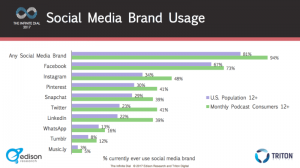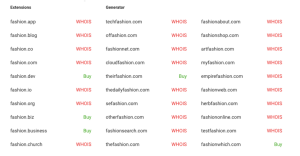
One trait that sets humans apart is our drive to make sense of things. We do this so we can comprehend our shared history and make plans for the future. As professionals, we do this so we can assess the state of our businesses and strategize for growth.
The new year is a time of reflection. We’re still early into 2017, and I keep trying to make sense of the past year.
The Year of the Customer
In the business world, 2016 was hailed as the Year of the Customer. At MaritzCX, my colleagues and I released a comprehensive, actionable framework called CXEvolution that we leverage to help our clients improve the quality of customer experience (CX) they deliver. Through my consulting engagements and analysis of market data, I’ve witnessed how organizations that focus on CX get big returns on their investments. Doing right by customers isn’t just an altruistic goal – it’s good for the bottom line, too.
I’m proud to be part of the CX trend. Yes, a focus on CX delivers real ROI. But more importantly, by caring about customer experience, CX professionals are helping to make the lives of ordinary people better. Everyone needs to buy products and use services, and companies succeed when they do well in the marketplace. It’s a win-win when businesses are rewarded with increased revenue and greater retention by responding to their customers’ voices.
The Exponential Growth of CX
CX became so important that a new industry began to grow around it. The Customer Experience Professionals Association (CXPA) was founded a little more than five years ago (2011) to help CX professionals improve consumers’ experiences across multiple channels. At the time, these channels ranged from brick and mortar stores to call centers, mobile commerce sites, and the web.
Since then, CX has become a vital part of the marketplace, much faster than we might have expected. That’s because technological innovation, particularly the development of social media, has made sharing customer experiences more ubiquitous, instantaneous, and (as many of us can attest) more gratifying than ever. We’re long past the Mad Men days when a select few decided what to produce and how to get consumers to buy it. Now consumers – really, anyone with access to Wi-Fi – can broadcast their experiences in real time to a vast network of people, leaving the burden on businesses to respond quickly and decisively. For the most part, this is a good thing. It’s especially good for consumers because their voices, voices that wouldn’t have mattered much before the digital age, are not only heard, but they have impact. Those voices not only affect a company’s reputation, but the company’s bottom line as well.
And that feels like democracy, a topic I care deeply about (disclosure: I have a doctorate in political science). I love working in CX because by helping my clients respond to customers’ voices (and not only their dollars), consumers are able to get the products and services that are best for them as individuals and that, in turn, help advance our society as a whole. I’m helping businesses become the best they can be for their customers (while also maximizing their margins), and I’m helping ordinary folks live in a (consumer) society that is responsive to them.
Social Media: CX, Democracy, and What’s to Come
I’ve argued here that social media cultivated a more responsive consumer market, making capitalism, in a sense, more democratic. At the same time, however, we are now experiencing the rise of a new global wave of populism and all that it entails – a phenomenon also driven, at least in part, by social media (specifically, the proliferation of populist voices on social media). That leaves us with a potential paradox for democracy: if social media has helped both CX (which can enhance democracy) and populism (which can enhance, or if history is a guide, potentially undermine democracy) become global forces, what does that mean for our future and how should we feel about it? Relaxed and confident? Pessimistic and cautious?
Regardless of your perspective, it’s safe to say that social media and CX is here to stay – and that is a good thing. It means that regardless of the form of government, businesses will need to remain responsive to their customers if they want to win in the marketplace. It means that CX as a business strategy will be as important as it has been over the past five years, if not more so. It means that while contagious anger expressed on social media may have helped spur populism, social media may also undermine populism’s “us versus them” ethos by shining a light on everyone’s experiences in a “one person, one vote” (or “one person, one Twitter”) kind of way. History shows us that technological change enabling the free exchange of ideas (i.e., the digital age) can undermine authoritarian forms of government. Advances in technology and communication, social media in particular, is a check that balances authoritarian tendencies. And where democracy as a political system does not exist, CX, as a way for ordinary people to express their needs and get them met, may fill democracy’s shoes.
No Shortcuts
As I’ve tried to make sense of this past year, I can’t stop thinking about the seemingly-outsized role social media has played, not only in the rise of CX in business (definitely good!) but in the populism that’s sweeping the world (questionable at best). But as Supreme Court Justice Louis Brandeis famously said, “There are no shortcuts in evolution.” Human progress is bumpy, and CX is a catalyst that will become more important as our marketplaces and governments evolve.
The opinions expressed here are those of the author, not MaritzCX
Digital & Social Articles on Business 2 Community(55)








